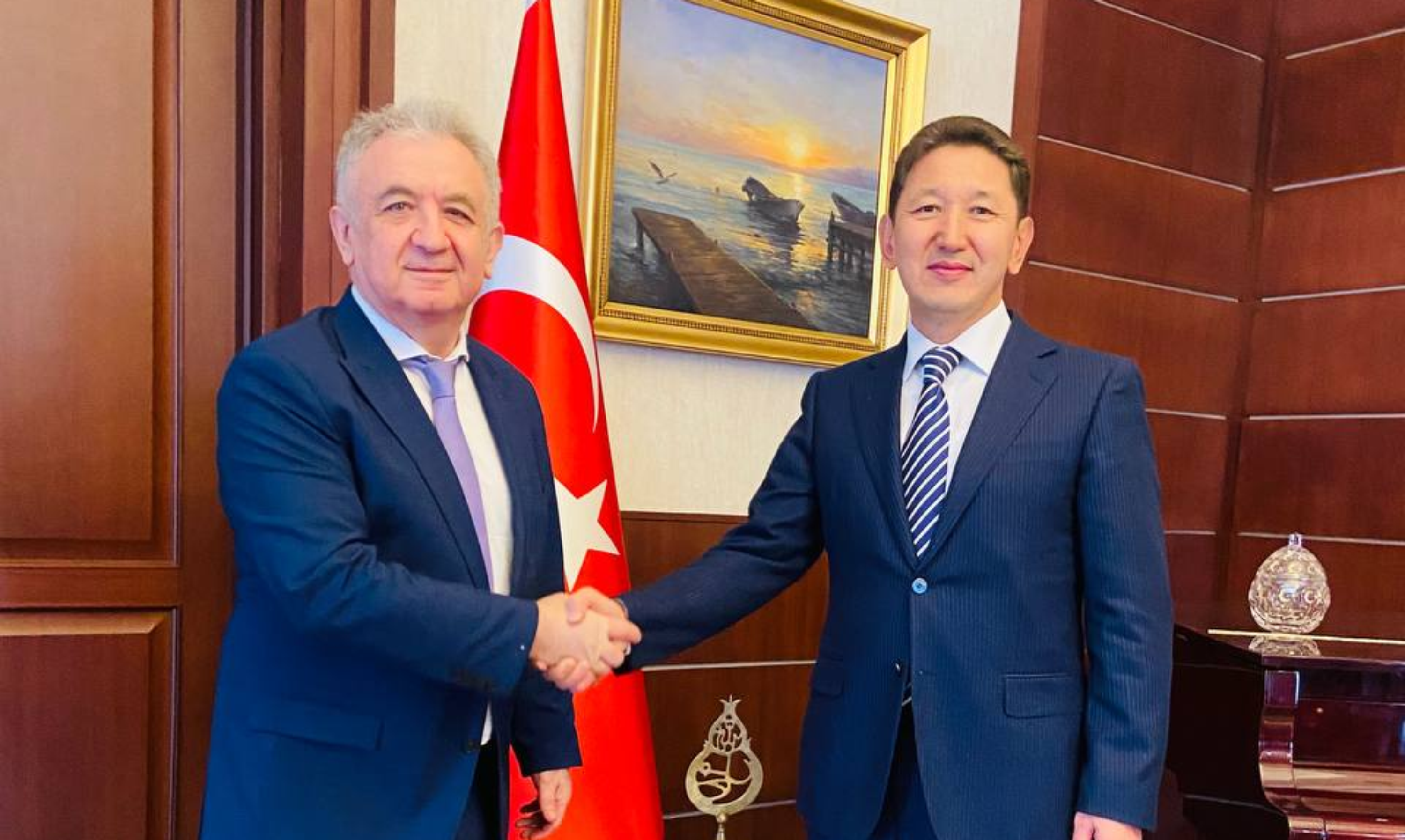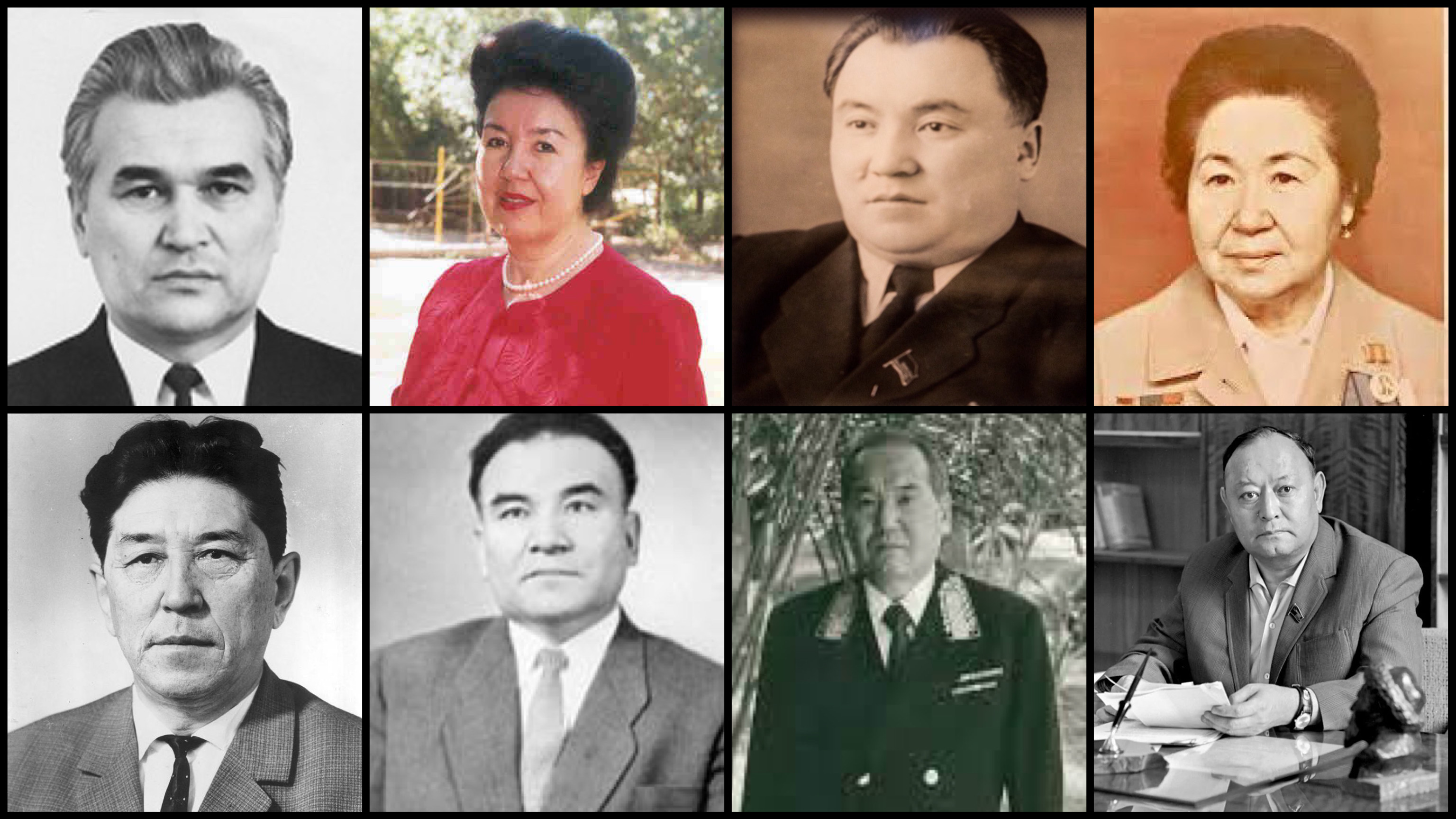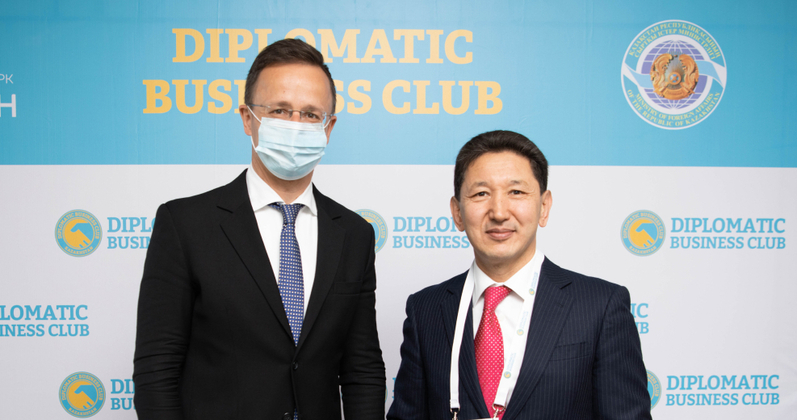This month marks the 80th anniversary of establishing the People's Commissariat for Foreign Affairs of the KazSSR. Due to the political system of the time, this department performed more representative and protocol functions, and its leaders often combined work in the PCFA (People's Commissariat for Foreign Affairs) and then the Ministry of Foreign Affairs of the KazSSR with their primary job. The first People's Commissar of Foreign Affairs of the KazSSR was Tulegen Tazhibayevich Tazhibayev. At the same time, a modest foreign policy office after the independence of our Republic became the basis for the formation of Kazakhstani diplomacy.
Today, more than 30 years later, we can confidently state that the diplomacy of independent Kazakhstan has taken place and is developing dynamically, making a significant contribution to the success of our young country. It should be noted that Kazakhstan's global diplomacy was not just an essential attribute of the country's true independence but also a key means of ensuring its security, development, and well-being and strengthening international peace and cooperation. As an expert on the KazSSR PCFA, Associate Professor M. Yermagambetov wrote: "...yes, Kazakhstan had its diplomacy, and its diplomacy has its history".
Remembering the path travelled, it is worth looking back at the main historical milestones that preceded the formation of Kazakhstan's diplomacy. In particular, it concerns the participation of Kazakhstanis in the diplomacy of the Soviet period.
On 26 August 1920, an event directly affecting the history of the Kazakh people took place - the establishment of the Autonomous Kyrgyz (Kazakh) Soviet Socialist Republic.
When considering the competence of the central bodies, it was decided that "foreign affairs and foreign trade remain entirely under the jurisdiction of the central bodies of the RSFSR." This decision was made, not least because of severe concerns about the border with China, whose unstable situation created additional uncertainty about the state border of the emerging Soviet country.
Moscow's official course was logically continued by centralizing foreign policy after the formation of the USSR in December 1922. In the 20s and 30s, foreign relations in Kazakhstan were mainly economic. An agent of the People's Commissariat for Foreign Affairs (PCFA) was stationed in the republic, whose main task was to ensure links with Soviet consulates in Xinjiang.
At the same time, the way was opened for the first time for Kazakhs to enter the diplomatic service in Moscow and the USSR missions abroad. However, in practice, the opportunities for this were minimal, so the representation of Kazakhs in the ranks of the Soviet diplomatic service for many years was minimal. We can remember only Nazir Tyuryakulov (1892 - 1937) - a prominent party and statesman of Turkestan, appointed in December 1927 as the USSR ambassador to the Kingdom of Hijaz, Nejd and annexed areas (since 1932 - the Kingdom of Saudi Arabia). Our fellow countryman, accredited in 1930 as Minister Plenipotentiary and Envoy Extraordinary, was even a dean of the diplomatic corps in this state.
The radical break in the Great Patriotic War raised the issue of post-war reorganization of the world before the countries of the anti-Hitler coalition, which was one of the reasons for changing the Kazakh SSR's international legal personality. On 13 April 1944, the law of the KazSSR on establishing the People's Commissariat of Foreign Affairs in the republic was adopted.
The Kazakhstani PCFA (renamed into the Ministry of Foreign Affairs in 1946) had a long road to its full-scale formation. Even at the organizational stage, its formation was delayed: the law was signed in April, the first head - Tulegen Tazhibaev - was appointed only in August, and the actual predecessor of the People's Commissariat - the Office of the Commissioner of the USSR PCFA under the CPC of the KazSSR - was abolished only the following year. For a long time, from the late 1940s to the mid-60s, the ministry did not provide for the post of deputy minister, and the post of minister itself was repeatedly abolished. In addition, the position was often replaced by the current Deputy Prime Minister for Social Policy and/or Minister of Culture.
The creation of the appropriate legal basis for the organisation of the People's Commissariat of Foreign Affairs of the KazSSR was carried out by the VII session of the Supreme Soviet of the Republic. At the evening session meeting on 12 April 1944, 171 deputies heard the report of the Chairman of the Soviet Commissariat of the KazSSR N.D. Undasynov on the expansion of the sovereign rights of the Union republics in the field of defence and foreign relations. The main emphasis of Nurtas Dandybayevich's speech was in the statement that "the entry into the external arena of our Kazakh Republic, the right to enter into direct relations with foreign states, to conclude agreements with them and exchange representations - is an exceptional event in the history of the Kazakh people and will further strengthen the friendship and brotherhood of the peoples of the Soviet Union". The parliament session unanimously approved the law to form the People's Commissariat of Foreign Affairs of the KazSSR. It added Articles 16 b, 19,31,43,45 and 52 of the Constitution of the Republic. The official text of the Law was signed by the Chairman of the Presidium of the Supreme Soviet of the Kazakh SSR, A. Kazakpaev, and the Secretary of the Presidium, S. Nurmagambetov, on 13 April 1944. Henceforth, constitutionally, KAZSSR had the right "to enter into direct relations with foreign states, conclude agreements with them and exchange diplomatic and consular missions". In short, the KazSSR gained the right to appoint and recall its diplomatic representatives in foreign countries and to accept credentials and letters of recall of representatives of foreign countries accredited to the KazSSR. The adoption of the law did not lead to the immediate establishment of the foreign policy department of the republic. A colossal work on personnel selection began.
Nevertheless, it should be noted the significant contribution made as Minister of Foreign Affairs of the KazSSR to the development of the republic by prominent state and public figures of that period - Khairgali Baigaliev, Askar Zakarin, Uteshkali Atambaev, Adi Sharipov, Balzhan Bultrikova, Muslim Bazarbaev.
Over time, the Foreign Ministry of the KazSSR became famous for its contribution to the foreign policy of the entire Union. Malik Fazylov, a graduate of MGIMO, achieved the most incredible career heights among Kazakh diplomats of that period.
It is worth starting with the fact that during his work as Minister of Foreign Affairs of the KazSSR in the early 1970s, with his direct participation, issues of expanding the republic's representation in all-union international events were solved. This is the exchange of party, government cultural and economic delegations, and the expansion of foreign economic relations of republican enterprises. So, in 1975, Kazakhstani production was exported to 71 countries of the world for the sum of 503,2 million roubles; in 36 countries, 758 envoys of Kazakhstan rendered technical assistance and promoted improvement of educational level. Days of culture in France, Belgium, and Syria, as well as events with WHO, CMEA, and UNESCO, were held in the republic. The delegation of Kazakhstan participated in the days of the Soviet Union in France and Denmark and established twinning ties between the republic's cities. The same year, Kazakhstan visited 12 736 tourists from 90 states, and 13 843 Kazakhs travelled abroad.
The Union Centre recognises M. Fazylov's professional competence, outstanding organisational skills, and versatile work experience. In 1976, he was appointed Ambassador Extraordinary and Plenipotentiary of the USSR to Mali and, in 1983, to Morocco (until 1990).
Mikhail Isinaliev contributed significantly to raising the republic's diplomatic service status in the last decade of the USSR. His encyclopaedic knowledge, unconventionality of inquisitive mind, endless generation of ideas, undoubted qualities of a leader, analyst, polemicist and publicist, innate intelligence and decency attracted people like a magnet. Today, there is no doubt that Mikhail Ivanovich's contribution to the formation of the future building of Kazakhstan's diplomatic service is weighty and significant because all his efforts were aimed at raising the status of a diplomat and, ahead of time, worked for the sovereignty of Kazakhstan.
Finally, in Almaty, the capital of the Republic, the Ministry of Foreign Affairs was allocated a separate mansion from the Verny period, later known as the "hut."
The active work of M. Isinaliev played a role in changing the status and image of the Kazakh SSR MFA. It was under him that many department employees received diplomatic ranks. For the first time in the Republican Ministry of Foreign Affairs' practice, employees began to be sent for internships and permanent work in Soviet foreign missions. Many later formed the backbone of the diplomatic department of already sovereign Kazakhstan.
Many diplomats of the Republic passed M. Isinaliev's school, including the subsequent senior staff of the Foreign Ministry and Ambassadors Extraordinary and Plenipotentiary of the Republic of Kazakhstan, who today successfully represent our country abroad.
Some other natives of the Kazakhstani leadership also served as Soviet ambassadors abroad, although they were not professional diplomats. First Secretary of the CPC Central Committee P. Ponomarenko was the USSR Ambassador to Poland, India and the Netherlands. Second Secretaries of the Central Committee N. Rodionov and O. Miroshkhin were ambassadors to Zambia and Yugoslavia, First Secretary of the North Kazakhstan Regional Committee of the CPC V. Nikolaev was ambassador to Iraq, Deputy Commissar of Agriculture of the KazSSR V. Pisarev was ambassador to Mongolia.
As noted above, several Kazakhs managed to work abroad in the embassies and consulates of the USSR. Among them, I. Amangaliev - counsellor in Iran, Algeria, Indonesia, A. Dzhamburshin - counsellor in Canada, S. Kurmangozhin - counsellor in Ethiopia, N. Danenov - counsellor in Tunisia, Sh. Nadirov - Minister Counsellor in Mongolia, D. Raimbekov - Counsellor in Hungary, G. Rudenko - Counsellor in Bulgaria, T. Suleimenov - Counsellor in Iran, T. Tazhibaev - Counsellor in India, B. Taizhan - Counsellor in NDRY, B. Temnikov - Counsellor in Bulgaria and Bulgaria. Temnikov - Counsellor in Bulgaria and Italy, R. Turdiev - Minister Counsellor in Tunisia, B. Tymbayev - Counsellor in Cuba, A. Cherekaev - Counsellor in Australia, V. Gizzatov - First Secretary in Finland and Laos, R. Djienbaev - First Secretary in Romania, S. Ermekbaev - First Secretary in Tunisia, B. Nurgaliyev - First Secretary in India, K. Tokayev - First Secretary in China.
With Independence, the history of the Ministry of Foreign Affairs has taken a whole new level.
The Diplomatic Business Club would like to thank I. Omarov, Head of the Public Diplomacy Department of the Committee of International Information under the Ministry of Foreign Affairs of the Republic of Kazakhstan. Facts from the history of the Ministry of Foreign Affairs of the KazSSR are taken from I.M. Kozybaev's book "Diplomacy of Kazakhstan: pages of history".
https://dbc.kz/en/novosti/51-formation-of-kazakhstan-s-foreign-policy-system-the-history-of-the-establishment-of-the-foreign-ministry-of-the-kazssr#sigProIdfd0c29dc07







